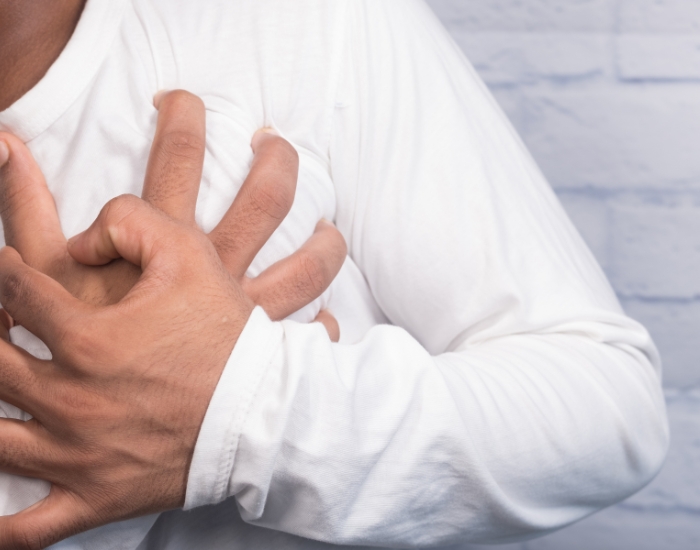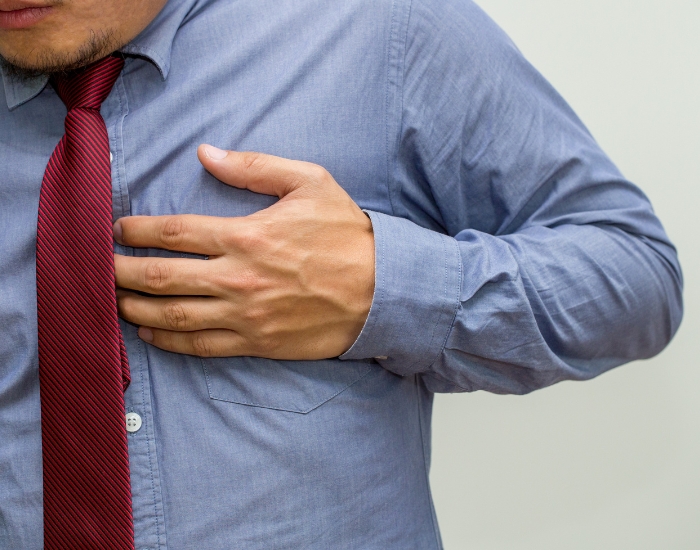Anxiety attacks, also known as panic attacks, are intense episodes of fear and discomfort that can come on suddenly and feel overwhelming.
During an anxiety attack, you might experience racing thoughts, rapid heartbeat, chest pain, shortness of breath, or dizziness, which can sometimes mimic serious heart or lung conditions.
Because the symptoms are so frightening, many people worry they are having a heart attack or another medical emergency. This often leads to more panic and fear. Understanding what an anxiety attack is and how long it typically lasts can help you stay calm, know when to seek help, and take steps to manage these episodes in the future.
Understanding What an Anxiety Attack Feels Like
Anxiety attacks are a physical reaction to intense stress or fear. When your body perceives a threat, it triggers the “fight-or-flight” response, releasing adrenaline and other stress hormones. This causes changes such as:
-
Rapid heartbeat or palpitations
-
Shortness of breath or hyperventilation
-
Sweating and trembling
-
Dizziness or lightheadedness
-
Chest discomfort or tightness
-
Feeling detached from reality or losing control
-
Sudden, overwhelming sense of fear or doom
Because these symptoms appear so suddenly, it’s easy to mistake them for something more dangerous. Many people end up visiting an emergency room or cardiologist, especially if chest pain or difficulty breathing is involved.
Typical Duration of an Anxiety Attack
The good news is that most anxiety attacks are temporary and will peak and subside on their own, even without treatment.
Here’s what you can generally expect:
-
Mild anxiety attacks: Last 5 to 10 minutes before gradually fading.
-
Moderate attacks: Often last 15 to 30 minutes, with the most intense symptoms at the beginning.
-
Severe panic attacks: Can feel like they last much longer but typically resolve within 30 to 60 minutes.
It’s important to remember that while the physical sensations may fade within an hour, lingering anxiety and exhaustion can continue for several hours or even days afterward. This is sometimes called a “panic hangover.”
Why Some Anxiety Attacks Last Longer
While most anxiety attacks are short-lived, a few factors can make them seem longer or more intense:
-
High stress levels or ongoing triggers: Continuous stress, such as work pressure or a major life event, can cause repeated episodes.
-
Hyperventilation: Rapid, shallow breathing can increase symptoms and make you feel dizzy or lightheaded, prolonging the attack.
-
Fear of the attack itself: Worrying about the next episode can create a cycle of anxiety, making each attack feel longer and harder to manage.
-
Underlying health issues: Conditions like thyroid problems, heart arrhythmias, or certain medications can amplify anxiety symptoms.
If your episodes are lasting longer than an hour or occur frequently, it’s important to see a healthcare provider to rule out other causes and get professional help.
How to Tell If It’s an Anxiety Attack or a Heart Issue
Since anxiety attacks can mimic heart problems, it’s not always easy to tell the difference.
Here’s a general guide — but keep in mind that only a doctor can make a clear diagnosis:
Signs it may be an anxiety attack:
-
Symptoms appear suddenly and fade within 20–30 minutes
-
Pain is sharp or fleeting rather than constant pressure
-
You’ve had similar episodes during stressful situations
-
You feel tingling in hands or feet and rapid breathing
Signs it may be a heart condition:
-
Chest pain feels heavy, crushing, or like pressure
-
Pain radiates to the jaw, shoulder, or arm
-
Shortness of breath occurs even when calm or at rest
-
Sweating, nausea, or extreme fatigue accompany the episode
If you’re unsure, always seek immediate medical care.
It’s better to be cautious, especially if you have risk factors for heart disease.
Tips to Shorten and Manage Anxiety Attacks
While you can’t always stop an anxiety attack from starting, you can take steps to calm your body and mind more quickly:
-
Focus on slow, deep breathing to counteract hyperventilation.
-
Ground yourself by noticing things around you — touch a surface, describe what you see, or count objects.
-
Practice relaxation techniques such as meditation or progressive muscle relaxation.
-
Challenge negative thoughts by reminding yourself the attack will pass and is not dangerous.
-
Avoid stimulants like caffeine or nicotine, which can worsen symptoms.
-
Consider therapy or counseling to develop coping strategies for long-term relief.
When to Seek Professional Help
You should talk to a doctor or mental health provider if:
-
Your anxiety attacks happen frequently or interfere with daily life.
-
You are unsure whether your symptoms are from anxiety or another condition.
-
The episodes are accompanied by chest pain, fainting, or irregular heartbeat.
-
You feel constantly on edge or worried about having another attack.
At Advanced Cardiology, we often see patients who come in for chest pain or palpitations only to discover the symptoms were related to anxiety rather than heart disease.
Our role is to rule out heart-related issues first, giving you peace of mind and a clear plan for managing your health.
The Bottom Line
Most anxiety attacks last between 10 and 30 minutes, with symptoms gradually easing as your body recovers.
While they are not dangerous on their own, they can feel terrifying — and sometimes indicate a need for stress management or mental health support.
Because the symptoms overlap with heart and lung conditions, it’s always wise to get evaluated by a healthcare provider, especially if you’ve never had an episode before.
If you experience frequent episodes of chest pain, palpitations, or shortness of breath, the team at Advanced Cardiology is here to help.
We provide advanced testing and personalized care to determine whether your symptoms are related to anxiety, heart disease, or another medical issue.
📞 Call (713) 258-6111 or Request an Appointment Online today to schedule your consultation in Sugar Land or Katy, TX.






